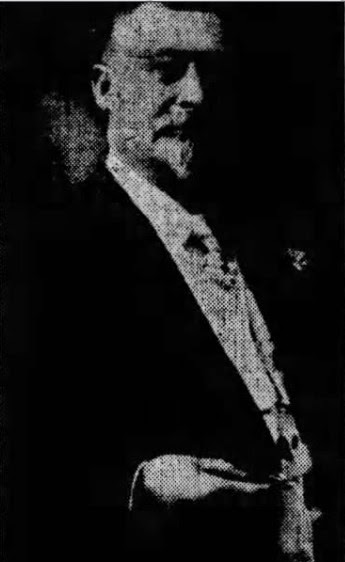Death of Professor Anthony O’Boyle - A Native of Keel, Achill
Saturday, May 10, 1913
Scranton Mourns the loss of one of its most foremost
citizens
A schoolmaster that gave it the spirit that made it great
Gave up the chance to become famed at sea to go to the help
of his native land
A tribute from one of his many schoolboys
Scranton, PA. - April 19 – Today at noon, all that was
mortal of the late Professor A.F. O’Boyle was laid to rest by the side of the
ashes of his wife who preceded him nine years ago in Cathedral Cemetery.
 |
| Anthony F. O'Boyle |
Sixty-three years ago there was born in the little town of
Keel, Achill, a boy, and as he grew, he evinced a desire for the sea, and as a
youth, his one great ambition was to be a navigator. That boy was A.F. O’Boyle,
whose funeral so many of us attended this morning. The boy was sent to the
Dublin University where he pursued his study in navigation and was graduated
for that position. But while in Dublin and, indeed, as he advanced in life, the
young man came to the conclusion that it was nobler to serve the people than
the Government that enslaved them. As Emmet and other Irishman of heroic blood
drifted, so did young O’Boyle.
The man, qualified to navigate the high seas for England,
became a Fenian, and he went back to the town of Achill to teach and spread the
cause of the Irish patriots. In this town, young O’Boyle taught school and
spread Fenianism. In 1867 he came to this country with his gospel and found a
position as a public school teacher in Minooka.
The young Irish school teacher was not long in this country
until he made his influence felt and became a factor. He was of fine physique,
of warm, red blood with an intellect that was quick and sharp, and tongue well
attuned to the King’s English. Nature fortified the young man in many ways. He
could stand among men and express himself. There was elegance in his attire, in
his speech, and in his manner. For thirteen or fourteen years before he came,
Minooka was a small mining town with little opportunity for educating the
young. The teacher that now and then came to the school was just an ordinary
sort of fellow with nothing strong or potent in his character. Professor
O’Boyle was a different kind of teacher—something new to the town. He had a
vitality that made itself manifest. He possessed a vigor that was forceful. He
had a spirit—now called ginger. He was a dynamo of mental, physical and of
patriotic energy. He had a manliness that stood out boldly and cowered before
no self-constituted authority.
